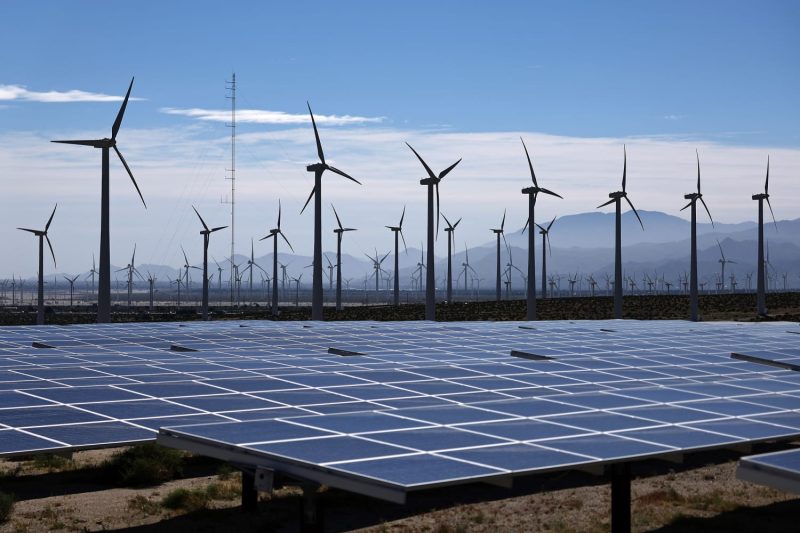Renewable Energy Demand Could Triple as Electricity Consumption Surges
The current global trajectory indicates a significant surge in electricity consumption, driven by growing populations, industrialization, and increased reliance on electronic devices. As a result, there has been a growing emphasis on transitioning to renewable energy sources to meet this escalating demand sustainably.
According to recent data and projections, the demand for renewable energy could triple in the coming years to keep pace with the expanding electricity needs worldwide. This surge in demand is attributed to several key factors and trends that are shaping the energy landscape on a global scale.
One of the primary drivers of the increased demand for renewable energy is the growing awareness of the environmental impact of traditional energy sources such as coal, oil, and natural gas. The detrimental effects of fossil fuels on the environment, including air and water pollution, greenhouse gas emissions, and climate change, have prompted governments, businesses, and individuals to shift towards cleaner, more sustainable energy alternatives.
Additionally, the rapidly declining costs of renewable energy technologies, such as solar panels and wind turbines, have made these sources increasingly competitive with conventional fossil fuels. As a result, many countries and companies are now investing heavily in renewable energy projects to take advantage of these cost-effective and environmentally friendly solutions.
Moreover, the reliability and resilience of renewable energy sources have improved significantly in recent years, thanks to advancements in energy storage technologies and grid management systems. This has helped address some of the challenges associated with the intermittent nature of solar and wind power, making renewable energy a more viable and dependable option for meeting electricity demands.
Furthermore, the increasing focus on energy security and independence has prompted many nations to reduce their reliance on imported fossil fuels by investing in domestic renewable energy sources. By harnessing their own renewable energy potential, countries can enhance their energy security, reduce their carbon footprint, and create new economic opportunities in the clean energy sector.
As the demand for electricity continues to rise, it is crucial for policymakers, energy companies, and consumers to prioritize the transition to renewable energy sources to ensure a sustainable and secure energy future. By investing in renewables, adopting energy-efficient practices, and promoting innovation in clean energy technologies, we can meet the growing demand for electricity while mitigating the environmental impacts of traditional fossil fuels.
In conclusion, the tripling of demand for renewable energy reflects a significant shift towards a more sustainable and cleaner energy future. By embracing renewable sources such as solar, wind, hydroelectric, and geothermal power, we can reduce our carbon footprint, combat climate change, and create a more resilient energy system for generations to come. It is imperative that we continue to accelerate the transition to renewable energy to meet the surging electricity demands while safeguarding our planet for future generations.


























